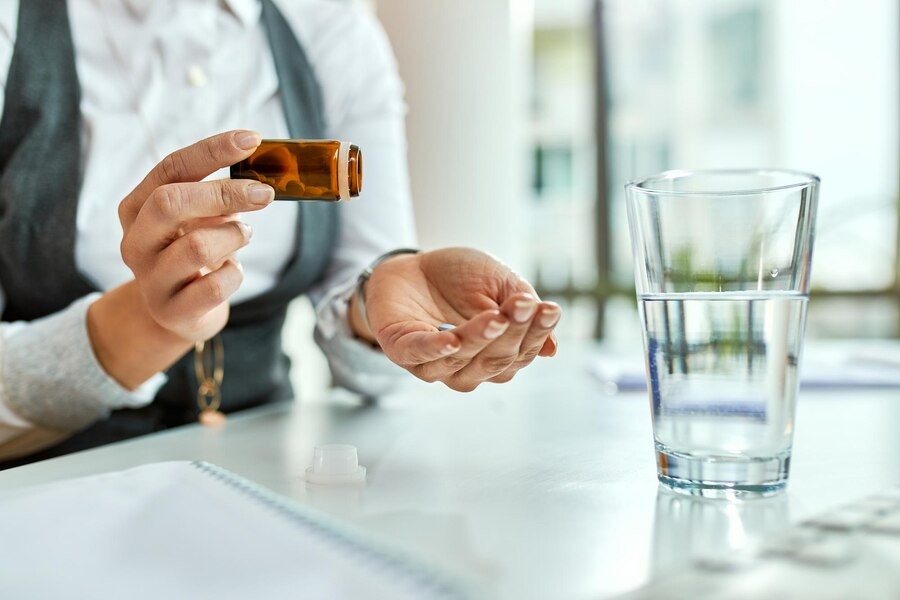People who stop using drugs, alcohol, or other addictive substances frequently experience withdrawal symptoms. These symptoms can last for a few days or weeks, depending on the severity of the addiction and the reaction of the body. What are the withdrawal symptoms, and how should they be managed? Check out the description below.
What is withdrawal syndrome?
When you stop taking addictive drugs like sedatives, inhalants, narcotics, or other substances, your body will go through withdrawal symptoms.
As you use certain drugs or substances, your body develops a tolerance to them. The more you use the substance, the more resistant your body becomes, requiring higher doses to achieve the desired effect. This is when dependence develops.
When you abruptly or drastically stop using a substance, you will experience a variety of symptoms that affect your emotional and physical well-being. This condition is referred to as withdrawal syndrome.
The severity and duration of withdrawal symptoms vary greatly depending on several factors, including the type of drug, duration of use, age, and overall health. In certain circumstances, withdrawal symptoms can be severe and potentially dangerous. It is best to consult with a doctor before stopping any medication or substance to ensure safe management of withdrawal.
What are the symptoms of withdrawal syndrome?
Symptoms of withdrawal syndrome vary from person to person, depending on the type of drug used, how it is used, the dose, and how long you have been using it. Common symptoms include:
- Appetite changes
- Mood swings
- Irritability
- Depression
- Chills
- Nasal congestion
- Body fatigue
- Muscle pain
- Nausea
- Restlessness
- Sleeplessness
- Sweating
- Tremor
- Vomiting
In severe cases, withdrawal symptoms may include hallucinations, seizures, and delirium. While some people experience withdrawal symptoms for a few days, others can last up to a week. Withdrawal symptoms associated with mental disorders, such as depression, can last longer than physical symptoms.
Treatment options for withdrawal syndrome
Treating withdrawal symptoms requires extensive support from loved ones and the appropriate medical team. Treatment consists of medication, lifestyle changes, psychological support, and, if necessary, medical detoxification.
Treatment options include:
- Support from family and loved ones
- Behavioral therapy
- Joining a recovery group for support and information about recovery
- Using medications to alleviate symptoms like nausea, anxiety, or insomnia
- Eating nutritious foods
- Spending time in nature
- Exercising regularly
- Getting enough sleep
Suddenly discontinuing the use of certain medications, such as antidepressants or opioids, can be dangerous. While breaking an addiction is a good thing, you should consult with a doctor before making the decision to quit. Your doctor will recommend a rehabilitation program that is appropriate for your condition.
If you need medical advice or consultation, you can either visit a doctor or make use of the consultation features that are available in the Ai Care application by downloading the Ai Care application from the App Store or Play Store.
Looking for more tips and health tricks, first aid, and home remedies? Click here!
- Sean Edbert Lim, MBBS
Buddy, T. (2024). Understanding Withdrawal and Its Effects. Available from: https://www.verywellmind.com/what-is-withdrawal-how-long-does-it-last-63036
Jones-Patten, A., Rekhi, S. (2023). What Is Withdrawal?. Available from: https://www.health.com/withdrawal-7967001
Health Direct. Addiction Withdrawal Symptomps. Available from: https://www.healthdirect.gov.au/addiction-withdrawal-symptoms
Case-Lo, C. (2023). Withdrawing from Opiates and Opioids. Available from: https://www.healthline.com/health/opiate-withdrawal











